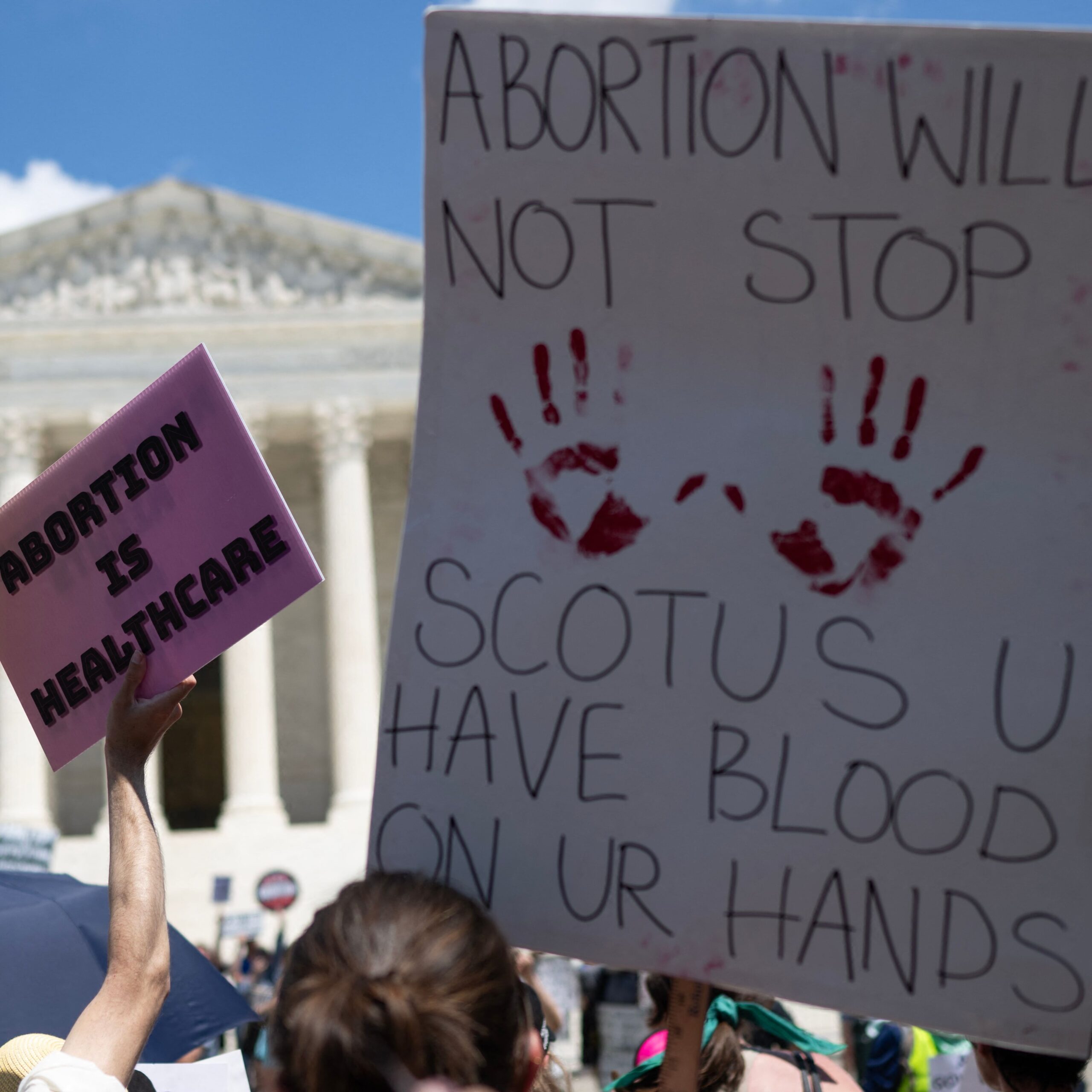
- POPSUGAR Australia
- Fitness
- This Reproductive Justice Advocate Says “We Should Be Fighting For More” in 2024
This Reproductive Justice Advocate Says “We Should Be Fighting For More” in 2024

As we wrap up 2023, the impact of the Supreme Court’s decision in June 2022 to overturn Roe v. Wade is coming into clearer focus. Just this month, a decision by the Texas Supreme Court denying a woman a court-approved abortion set an important legal precedent around medical exceptions. And, looking ahead to 2024, the fate of abortion will be on the ballot in a dozen states.
Communities of color have always been disproportionately affected by restricted abortion access. That’s why organizations like In Our Own Voice have sprung up – to address the inequality that has existed for so long and to seek reproductive justice for all.
We spoke with Regina Davis Moss, president and CEO of In Our Own Voice, about what voters should keep in mind heading into 2024, what’s at stake for the Black community in particular when it comes to restricted abortion access, and more. Read it all, in her own words, below.
It’s really important to understand that for Black women in particular, Roe is just the floor. It has never been enough. It’s always only centered the fact that we should have legal protection of abortion, which is absolutely the case, we should. However, we have always been challenged as Black women, girls, nonbinary people in terms of having the access. At times, we’ve also been challenged when we wanted to get pregnant in the first place; we’ve been sterilized without our consent.
That is one thing that I always want to lift up – that while it does feel like a new era for a lot of people, for Black pregnant people, we’ve always been subjected to reproductive oppression. Now everyone knows what it’s like to be potentially surveilled and criminalized for trying to exercise your bodily autonomy.
“Abortion is a matter of survival.”
But the impact of the last couple of years is clear. It’s everything from providers being confused about what they can and can’t do; increased risk of intimate partner violence; life-threatening pregnancy complications; surveillance with at-home abortions. It’s really important to note that despite all of this, what I hear overwhelmingly is that abortion is a matter of survival. And whether we have political protection or not, people will still seek abortions. That’s ultimately going to drive people toward places where abortions are being provided by people who are not trained, and people are going to die.
Disproportionately, women who are seeking abortions are already financially insecure. You have to overlay this with where we see the most restrictive abortion bans and where there are voter restrictions – in the South, you have the largest Black populations, and it’s where you see the most voter disenfranchisement as well as abortions bans and the highest maternal mortality rates. There’s absolutely no coincidence there. The goal is to keep people disempowered. When we’re not empowered and financially insecure, that pushes people into deeper poverty.
“The goal is not just reproductive justice; it’s human rights.”
What we’re trying to do at In Our Own Voice is to get people to vote with the reproductive justice lens. Because reproductive justice is a larger framework that’s basically asking people to go beyond abortion politics and intentionally welcomes in people from other movements, whether that’s economic justice, environmental justice, workers’ rights. The goal is not just reproductive justice; it’s human rights.
We really focus on getting people to vote with the reproductive justice frame, because that’s really about advocating for human rights, advocating for voting rights, holding elected officials accountable, electing people who represent those values because they’re going to govern in the way that’s reflective of what you want. It’s also not just about national elections; it’s about state, local elections – it’s every year, year-round.
Roe as we know it is gone. So we should lean into that and look at it as an opportunity to fight for more. Yes, we need to make sure legal protections are there, but we can fight for more and the things that we always wanted. Like, Medicaid does not cover abortion. Well, who’s disproportionately on Medicaid? So this is an opportunity to get at the access.
Black women were saying Roe wasn’t enough because when you had things like the Hyde Amendment and you couldn’t even access abortion, what did that matter? We want things like comprehensive sex education, contraceptive equity. All of those things we have the opportunity to address in 2024. My argument will always be that we should be fighting for more.
– As told to Lena Felton

